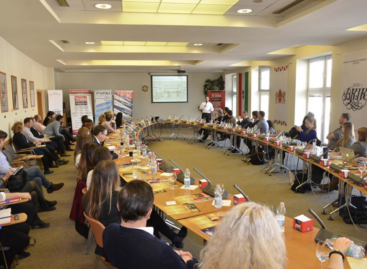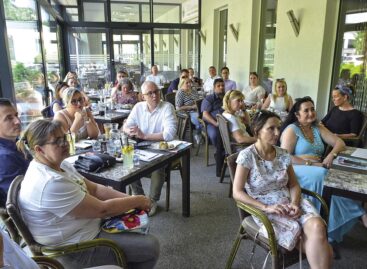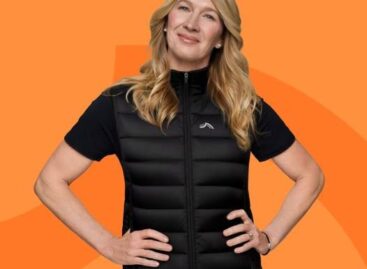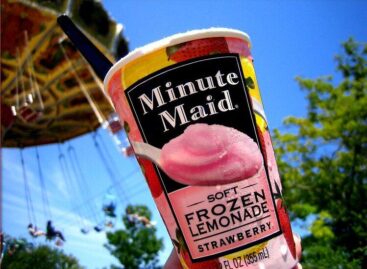Another 3-4 years until recovery
 At the Trade Marketing Klub’s “From market researchers first-hand” online event, experts analyzed the past 15 months. Price increases, volume decreases, promotional focus and shifts towards private labels and their effects leave a lasting impression on consumer and purchasing habits. At the beginning of the event, the organizers announced a breaking news.
At the Trade Marketing Klub’s “From market researchers first-hand” online event, experts analyzed the past 15 months. Price increases, volume decreases, promotional focus and shifts towards private labels and their effects leave a lasting impression on consumer and purchasing habits. At the beginning of the event, the organizers announced a breaking news.
Nearly 160 people registered for the “First-hand from Market Researchers” online TMK Meeting starting at 3 p.m. on April 11 this year. Zsuzsanna Hermann, one of the founders of TMK and managing editor-in-chief of Trade magazin, greeted the participants.
Breaking News: POP World Champion: the Coca-Cola Creations display
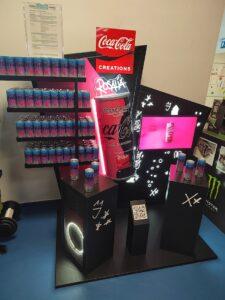
The other 2 founders of TMK, Ágnes Csiby and Ildikó Kátai, President and Secretary General of POPAI, made an extraordinary announcement that the previous

evening’s Shop! Global Awards ceremony announces this year’s category winners. Only national first-place winners can enter this competition. It is a great pleasure and honour that after 2010 and 2015 there will again be a Hungarian “POP World Champion” in 2024 at this extremely high quality and unique international competition. The winner of the Digital, Mobile, Interactive Media & Technology category was the “Coca-Cola Creations: Innovative Design for an AI-based Product” entry of the Hungarian Trusted Implementation Ltd., which was prepared for and in cooperation with Coca-Cola HBC. The entry was “Display of the Year” at the Hungarian POPAI Awards competition. The good news and congratulations were received by Tamás Harmati, Head of Trade Marketing at Coca-Cola HBC and Gergő Nidermayer, founder of Trusted Implementation.
The year of adaptation

Krisztina Bakonyi-Kovács, head of research at the GfK-Yougov Consumer Panel, started the series of professional presentations. Looking back at the last 15 months, she found that inflation and adjustment are the main features of this period. Households reacted to the decrease in real wages by reducing consumption, using cheaper alternatives or completely abandoning certain products. Large baskets are melting away, Hungarian households typically buy smaller baskets less often. One of the effects of the average price increase is that the price difference between branded and private label products decreases. At the same time, some categories were also able to increase in quantity, such as the group of protein-containing foods.
Overall, the presenter described the second half of 2024 as a period of “waiting”, where slowing down the decline and keeping the quantities at the same level can be the realistic challange.
Data-based sweepstakes

Jácint Goneth, the business development manager of PromoLab, the professional supporter of the event, presented the most effective forms of online promotions. Detailing the results of their own research, he presented the dangers of the image-focused prize pyramid, the opportunities of promotions organized based on accurate data, the importance of excluding distorting circumstances and observing exact timing. As the importance of promotions increases, efficiency, sales effectiveness and the transformation of shopper loyalty into heavy buying can play a key role in the range of activities.
Customers are on the spending limit

Andreas Christou, Managing Director of RetailZoom, illustrated the stages of consumption restraint with an overview of food inflation between 2020-24. In the current state, spending can no longer follow price changes, so even in Hungarian chains, customers were forced to buy smaller quantities, chose smaller packages and private label products, and left some categories in 2023. The data for the first quarter of 2024 show a higher basket value than last year and an average of 4.4 purchases per month. Loyalty card use, point redemption and an increase in the share of sales are typical in this channel as well. The presenter presented the top list of the most outstanding categories in terms of price increases, and then the categories with the most and least loyal purchases.
Strength in seasons

Csilla Zsigmond-Czikora, customer relations director of NIQ (formerly Nielsen), after a quick review of macroeconomic data, presented the changes in inflation and real wages in relation to European countries, highlighting similarities and differences. Consumer patterns that are typical in Europe are also typical in Hungary, although they differ in terms of shopping frequency and priorities. Although the prices of the discount channel are the lowest in the top 10 category, the price level is also increasing here, the gap is closing compared to the other channels.
Summarizing 2023, it is striking that the trends break in the seasons. In December, branded gifts and holiday foods come to the fore and more people go to the hypermarket channel. The same trend can be observed in e-commerce.
In response to questions, the experts agreed that it will take another 3-4 years for the consumption volume to recover, and for the value of real wages to recover and increase.
We will report on the event in more detail in our next issue.
Related news
A net, not a network: the art of networking
🎧 Hallgasd a cikket: Lejátszás Szünet Folytatás Leállítás Nyelv: Auto…
Read more >Related news
The first ball of the Gundel Palace conquered the stars with a full house
🎧 Hallgasd a cikket: Lejátszás Szünet Folytatás Leállítás Nyelv: Auto…
Read more >Coca-Cola To Discontinue Frozen Products In US And Canada
🎧 Hallgasd a cikket: Lejátszás Szünet Folytatás Leállítás Nyelv: Auto…
Read more >


